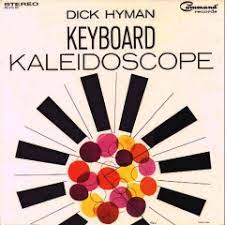
Daily Dose Of Jazz…
Richard Hyman was born in New York City on March 8, 1927 and grew up in suburban Mount Vernon, New York. His older brother, Arthur, owned a jazz record collection and introduced him to the music of Bix Beiderbecke and Art Tatum. Trained classically by his uncle, concert pianist Anton Rovinsky, who taught him touch and a certain amount of repertoire while he pursued Chopin on his own.
Enlisting in the U.S. Army in 1945, Dick was transferred to the U.S. Navy band department. After leaving the Navy he attended Columbia University where he won a piano competition with the prize being 12 free lessons with swing-era pianist Teddy Wilson. It was during this period Hyman fell in love with jazz.
During the 1950s Relax Records released his first two solo piano versions of All the Things You Are and You Couldn’t Be Cuter. Hyman recorded two honky-tonk piano albums under the pseudonym Knuckles O’Toole and recorded more as Willie the Rock Knox and Slugger Ryan.
In the 1950s and early 1960s Dick worked as a studio musician and performed with Tony Bennett, Perry Como, Guy Mitchell, LaVern Baker, Ruth Brown, Mitch Miller and many more. He played with Charlie Parker for Parker’s only film appearance and had a stint as music director for Arthur Godfrey’s television show from 1959 to 1961.
As a composer, arranger, conductor, and pianist he worked on eleven Woody Allen films as well as other films like Moonstruck and Scott Joplin. Hyman composed and performed scores for ballet and dance companies. In the 1960s, Hyman recorded several pop albums on Enoch Light’s Command Records using the Lowrey organ and then the Moog synthesizer.
Between 1970 and 2014 he recorded 112 albums as a leader, sixty-two as a sideman, and arranged four albums for Count Basie, Trigger Alpert and Flip Phillips. He has been a guest performer at jazz festivals and concert venues around the world. In 1995 pianist and composer Dick Hyman moved his wife Julia permanently to Venice, Florida.
More Posts: arranger,bandleader,composer,history,instrumental,jazz,music,piano
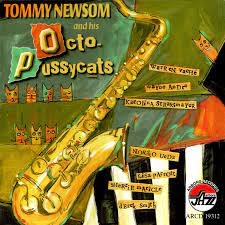
Daily Dose Of Jazz…
Thomas Penn Newsom was born in Portsmouth, Virginia on February 25, 1929 and earned degrees from the Norfolk Division of the College of William & Mary, the Peabody Conservatory of Music, and Columbia University. He went on to serve in the United States Air Force during the Korean War where he played in the band.
He toured with the Benny Goodman Orchestra and performed with Vincent Lopez in New York. Newsom joined the Tonight Show Band in 1962, and left it when Carson retired in 1992. In addition to Carson’s orchestra, he performed with the orchestra for The Merv Griffin Show.
Well known within the music industry as an arranger as well as a performer, he arranged for groups as varied as the Tonight Show ensemble and the Cincinnati Pops Orchestra, and musicians Skitch Henderson, Woody Herman, Kenny Rogers, Charlie Byrd, John Denver, and opera star Beverly Sills.
He won two Emmy Awards as a music director, one in 1982 with Night of 100 Stars, and in 1986 for the broadcast of the 40th Annual Tony Awards. He also recorded six albums as a bandleader and another four as a sideman.
On April 28, 2007 saxophonist Tommy Newsom, who was nicknamed Mr. Excitement by Johnny Carson and was the band’s substitute director, died of bladder and liver cancer at his home in Portsmouth. He was 78 years old.
More Posts: arranger,bandleader,history,instrumental,jazz,music,music director,saxophone
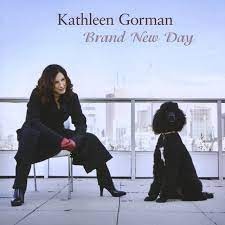
Daily Dose Of Jazz…
Kathleen Gorman was born on February 18, 1967 and grew up in Halifax, Nova Scotia in a musical family where creative expression was encouraged. Piano lessons started at age six, and years of classical studies gave her a solid musical foundation. She began performing and writing in her teens and after composing a theme for CTV for the Winter Olympics, she moved to Montreal, Canada to pursue jazz piano, arranging and composition studies. Completing a Bachelor of Fine Arts at Concordia University, Montreal she followed this by McGill for advanced study in composition and orchestration.
She continuously worked as a pianist/vocalist for several years in Montreal clubs before settling in Toronto, Canada where she began performing weekly, and set up a home studio, for recording projects and teaching. She is a Toronto based pianist/vocalist, as well as a composer/arranger and jazz educator, teaching jazz piano, theory and composition. She has trained with Jan Jarczyk, Jon Ballantyne, Hilario Duran, Sheila Jordan, Barry Harris, Kurt Elling, and Jeri Brown.
Pianist, vocalist and bandleader Kathleen Gorman continues to record, arrange, compose and educate, performing often in Toronto.
More Posts: arranger,composer,history,instrumental,jazz,music,piano,vocal
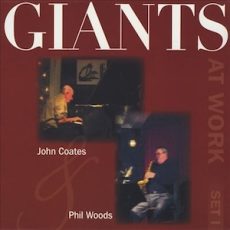
Daily Dose Of Jazz…
John Francis Coates Jr. was born February 17, 1938 in Trenton, New Jersey to a full-time performing musician and bandleader father, and his mother a dancer and actress. He attended Ewing High School and began his formal study in New York City at age eight with Urana Clarke at the Mannes College of Music on full scholarship. His earliest influences were credited to listening to Symphony Sid on his AM radio.
From age 11 to 14 he played clarinet with his father at the Trenton YMCA dance hall night, where he learned to improvise. His father began teaching him jazz piano at twelve and influenced by Jack Weig he joined the Trenton musicians union the same year. By 14 he was playing gigs two nights a week, as well as weekends and at sixteen he was gigging six nights a week during the summer at the Deer Head Inn where Savoy Records discovered him.
He recorded his debut Savoy album, Portrait, with bassist Wendell Marshall and drummer Kenny Clarke during his senior year of high school. He performed on the Steve Allen, Mike Douglas, and Merv Griffin tv shows in support of that album. From 1956 to 1958 he toured with Charlie Ventura, then while in college John played with Barry Miles, Eddie Gomez, Ron Carter, Woody Shaw, Harry Leahey, Al Cohn, Zoot Sims, Kai Winding, Urbie Green, and Pepper Adams.
Attending Rutgers University he graduated with a degree in romance languages in 1962. After graduating Coates returned to Deer Head where he again played six nights a week, four alone and two as bandleader. He took a position with Shawnee Press as an arranger and editor. He began performing at Henderson’s Club 50, where he had a six night per week gig and played with Coleman Hawkins, Clark Terry, Doc Severinsen, Phil Woods, Marvin Stamm and Bill Watrous among others.
Moving to Mountain Lake, New Jersey in 1966 and began working as an editor at Shawnee Press, arranged on his own time on a royalty basis, and playing at the Deer Head year round where he became an early inspiration for Keith Jarrett, who would listen and sit in occasionally. His arrangement for Amazing Grace has sold more than 750,000 copies and remains one of the publishing company’s best sellers.
John recorded nine albums for the record label Omnisound, toured briefly with bassist Paul Langosch, then began recording for Pacific St Records, including two albums with Phil Woods. In the 1990s, he became homeless and attempted suicide, then moved to Coney Island and began playing again around the year 2000.
Pianist, composer and arranger John C. Coates Jr., who occasionally played vibraphone and clarinet, died on November 22, 2017.
More Posts: arranger,composer,history,instrumental,jazz,music,piano,vibraphone
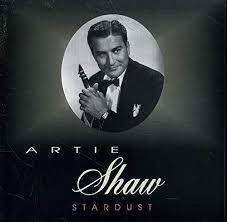
Daily Dose Of Jazz…
Lennie Hayton was born Leonard George Hayton on February 14, 1908 in New York City into a Jewish family. He developed a penchant for the piano when he was six years old, showing unusual interest in the early classics from the rolls of the family player piano. His parents disliked jazz, so it wasn’t until he was sixteen that he really discovered it. He left high school to become pianist with the Broadway Hotel Orchestra of Cass Hagen, a boyhood friend.
While playing at the Park Central, Hayton was heard by Paul Whiteman and immediately engaged by him in 1928 as second pianist, playing piano and celeste as well as acting as a part-time arranger. Whilst with the orchestra, he played with Frankie Trumbauer, Bix Beiderbecke, Red Nichols, Joe Venuti and became friendly with Bing Crosby, then a member of The Rhythm Boys. However, by 1930 due to the impact of radio on audiences, Whiteman released ten members of the band. Hayton then joined the Charles Previn Orchestra.
Rejoining Crosby he embarked on a cross-country tour, landing in Hollywood. 1932 saw Hayton leading an orchestra for his first recordings of Cabin in the Cotton, Love Me Tonight, Brother, Can You Spare a Dime? and Some of These Days all became Bing hits. The following year , Hayton became the musical director for the Chesterfield radio series Music That Satisfies which again featured Crosby and ran for 13 weeks.
His involvement with Crosby continued as musical director for the singer’s 1933 film Going Hollywood at Metro-Goldwyn-Mayer. This led to a major career for Hayton who continued to work with Crosby and became a musical director for MGM and guided it through its prime years as foremost producer of movie musicals. Up until his retirement from the post in 1953, Lennie racked up four Oscar nominations: The Harvey Girls, The Pirate, Singin’ in the Rain and Star! He won the Academy Award for music for On the Town and Hello, Dolly!.
He arranged for Frank Sinatra, composed Apple Blossoms with Joe Venuti, Frankie Trumbauer, and Eddie Lang, and his other compositions included Flying Fingers, The Stage is Set, Mood Hollywood with Jimmy Dorsey, and Midnight Mood. Hayton also co-arranged the Hoagy Carmichael composition Stardust with Artie Shaw for Bluebird Records.
His first marriage to Helen Maude Gifford ended in her death in 1943. Three years later he married Lena Horne whom he met on the MGM lot. Throughout the marriage, Hayton also acted as Horne’s music director. Facing the stresses and pressures of an interracial relationship, they had a tumultuous marriage, first based upon her desire to advance her career and cross the color-line in show business, but she had learned to love him very much.
Pianist, composer, conductor and arranger Lennie Hayton, whose trademark was a captain’s hat worn at a rakish angle, died of a heart attack while separated from Horne, in Palm Springs, California on April 24, 1971.
More Posts: arranger,composer,conductor,history,instrumental,jazz,music,piano



